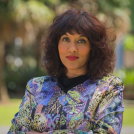Program lead: Dr Anita Heywood
Dr Holly Seale, Prof Raina MacIntyre, Dr Surendra Karki, Dr Alex Rosewell , Elizabeth Kpozehouen
Students: Dr Abela Mahimbo
VIRL conducts a range of social, epidemiologic and clinical studies to inform vaccination needs in migrants, refugees and travellers.
The traveller visiting friends and relatives is a special category of migrants that deserve special attention in vaccine-preventable diseases. The changing nature of organisms with their potential for mutation and crossing species, plus the impact of international travel and trade means that infectious diseases pose a continuing and evolving world-wide threat.
All entrants and re-entrants to Australia have the potential to import disease. For instance, virtually all measles clusters in Australia begin with an imported case and recent large outbreaks of dengue usually reflect virus importation from other countries via an infected index case. Travellers to some countries have considerable risk of infection, which they may bring back to Australia. Diarrhoeal and respiratory infections are common in travellers, both in the country of travel and on return. During the SARS (severe acute respiratory syndrome) epidemic, travel was a major mode of spread of the infection globally, causing WHO warnings about SARS-affected countries. These events highlight the fact that travellers are exposed to a range of infection risks, and may return carrying a pathogen. Indeed, the nature of contemporary travel means that individuals may be still within the incubation period when they arrive in their destination country.
Health inequity and provision of health care to resettled refugees and new migrants are complex and critical issues worldwide. Access to care before, during and after movement is a challenge identified in migrant and refugee groups, as well specific pre-embarkation and post migration challenges. The influence of culture on health service utilisation and health outcome has been well documented.
These groups often have higher rates of vaccine preventable diseases, combined with lower access to care and preventive services. Two decades ago, the most important of these groups were from South East Asia, but a shift in global conflict and migration patterns over this time means that our newest refugees and migrants are from Africa and the Middle East.
The specific issues facing these ethnic groups are different from the previous wave of migration. It is reported that immigrants from the horn of Asia, Middle East and Africa have an unmet health needs, with 17% having yet to access health care at all. Resettled refugees have not only faced the challenges of accessing health care services, but have been overwhelmed by other demanding resettlement issues such as poor housing, unemployment, poverty, acculturation, language, and social service needs among others. The research in this theme focuses on interventions to reach hard-to-reach migrant and refugee groups, and on comparing disease risks and immunisation strategies in older and newer migrant and refugee groups.


